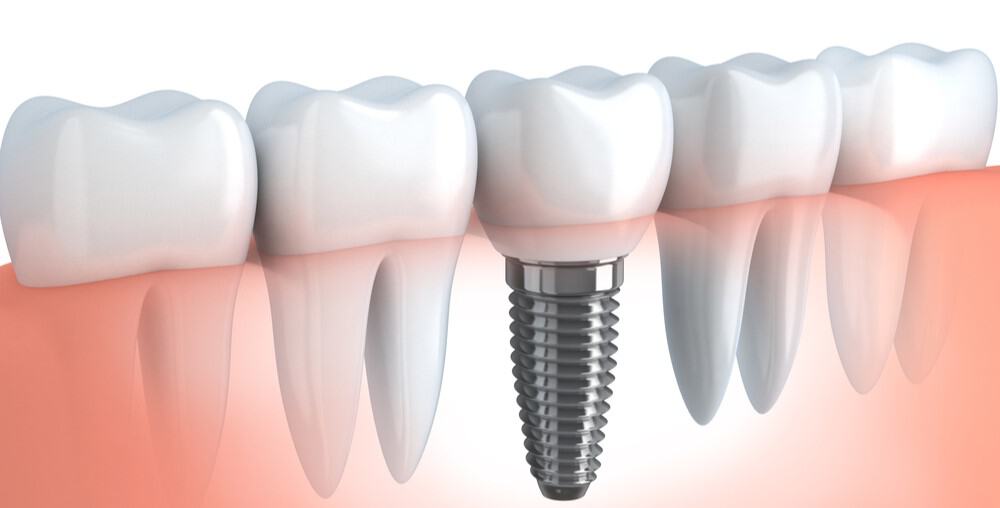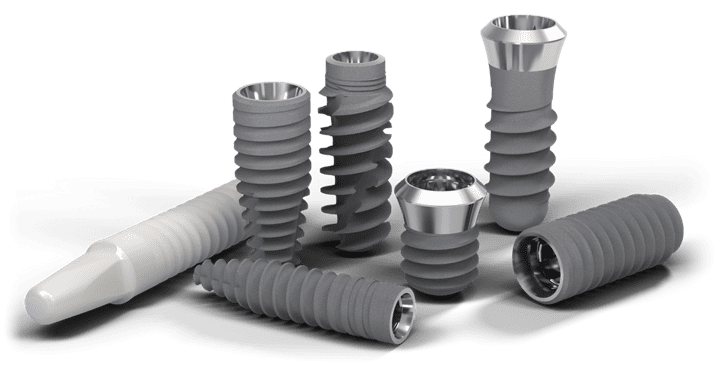Are Dental Implants Painful? What Can I Expect?

It’s a common concern for anyone considering this dental solution. In this guide, we’ll break down the pain factor. From what happens during the procedure to how you’ll feel afterward, we aim to give you the lowdown on dental implant discomfort. So, let’s dive in and ease those worries about getting back your perfect smile.
The terms dental implant and pain sometimes raise concerns among our prospective patients who opt for this solution.
However, dental implant placement is not painful considering the means at your disposal.
Our dentists require between 15 and 30 minutes to place an implant. This minimally affects the bone, promoting faster healing.
Additionally, for your comfort, our dentists routinely provide painkillers and anti inflammatories after your procedure. Therefore, you will experience no post-operative pain and can resume your normal activities immediately after the procedure.
Is the procedure performed under anesthesia to prevent pain?
Yes, dental implant placement is performed under local anesthesia. You will not feel any pain during the procedure as the area where the dental implant is placed is completely numb.
After the implant is placed, a healing period of 3 to 9 months is required for the bone to heal around the dental implant.
Once osseointegration is complete, the final ceramic prosthesis can be attached to the dental implant abutment, and this second step is also painless. To help you relax and alleviate any fear of pain, we offer the option to undergo treatment under intravenous sedation.
During the procedure, you will enter a state of semi-consciousness and well-being. This means you’ll feel relaxed and somewhat disconnected from reality, though you won’t fully fall asleep. Despite this, you can expect not to feel any pain during or after the procedure.
After the implant placement, can we experience pain?
After the dental implant placement and in the days following, various reactions may occur:
- A slight sensitivity
The level of discomfort associated with dental implants varies based on the surgical method employed. Typically, any post-operative pain arises more from gum detachment rather than the implant placement itself. Fortunately, this discomfort can be effectively managed with standard painkillers, which will be prescribed to you after the procedure. - A bruise
Post-operative discomfort may arise, particularly after bone grafting or significant interventions. This discomfort is often attributed to internal bleeding that persists after the procedure. While it may seem significant, it’s rarely a cause for concern. Typically, within a few days of dental implant placement, any post-operative pain, swelling, or bruising should diminish, and your dental stitches should begin to dissolve. - Swelling
It’s common to experience some swelling of the gum and cheek following any surgical intervention, which is a result of the inflammatory reaction in the area. However, this swelling is usually mild and should not cause significant discomfort.
The EL CEDRO Barcelona dental clinic 🇪🇸
Based in Spain, El Cedro Barcelona is a modern dental clinic, highly equipped with the latest technology and with a qualified team of dental surgeons and dental assistants. The clinic is managed by Dr Rodriguez who has 23 years of experience in dental surgery and dental implantology. To her side, Dr Montes has been a dental surgeon for the past 10 years now and is specialized in surgical, restorative and regenerative procedures.
In this dental clinic, our patient coordinators, dental surgeons, dental assistants and dental hygienists speak proper English. Additionally, they speak Spanish and French. They can then receive patients from abroad without any communication issues.

Start your dental journey now! 🦷
At the El Cedro Barcelona dental clinic, you can obtain a free dental quote. For that, just make an online quote request and fill in the form. If you have a recent panoramic X-ray, include it with your request.
Once the dental clinic receives your request, a dentist will examine the panoramic x-ray. They will suggest a suitable dental treatment plan tailored to your specific needs.











